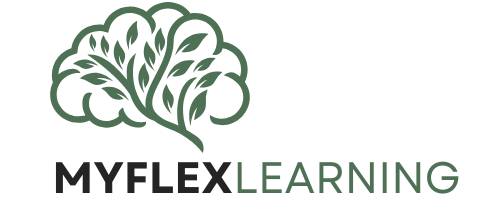Aspiring writers no longer need to dream about crafting the next bestseller from their living room couch. Online fiction writing courses have revolutionized the way budding authors learn their craft providing expert guidance without the need to step foot in a traditional classroom.
From character development to plot structure these virtual learning experiences offer everything a writer needs to transform raw creativity into polished prose. Whether someone’s dreaming up the next epic fantasy series or plotting a thrilling mystery these courses connect them with experienced instructors and like-minded writers in an interactive digital environment. They’ll discover proven techniques master the art of storytelling and build confidence in their writing abilities all from the comfort of home.
What to Expect From an Online Fiction Writing Course
Online fiction writing courses provide structured learning paths with specific modules, assignments and feedback systems. The coursework integrates both theoretical knowledge and practical application to develop essential storytelling skills.
Core Elements of Fiction Writing Programs
Fiction writing programs incorporate fundamental storytelling components through focused modules. Students learn character development techniques including personality profiling, backstory creation and character arc mapping. Plot structure modules cover the three-act framework, scene construction and narrative pacing. Writing exercises focus on dialogue crafting, description enhancement and point-of-view mastery. Advanced topics explore world-building methods, genre conventions and manuscript formatting. Each module includes writing prompts, peer reviews and instructor feedback to reinforce learning concepts.
Live vs Self-Paced Learning Options
Live online courses feature scheduled virtual workshops, real-time instructor interactions and group discussions at set times. Students participate in weekly Zoom sessions, collaborative writing exercises and immediate peer feedback exchanges. Self-paced programs offer pre-recorded video lessons, downloadable worksheets and flexible submission deadlines. Participants access course materials 24/7, complete assignments on their schedule and receive instructor feedback within designated timeframes. Both formats include discussion forums, writing communities and optional one-on-one mentoring sessions.
| Learning Format | Key Features | Interaction Level | Schedule Flexibility |
|---|---|---|---|
| Live Course | Virtual workshops, real-time feedback | High | Fixed schedule |
| Self-Paced | Pre-recorded content, forums | Moderate | Complete flexibility |
Top Skills You’ll Develop as a Fiction Writer

Online fiction writing courses equip writers with essential storytelling techniques through structured learning modules focused on key narrative elements. These specialized programs transform raw creative talent into refined writing skills.
Character Development and World Building
Character development mastery begins with creating three-dimensional personalities through detailed backstories personality traits emotional arcs. Writers learn to craft memorable protagonists antagonists supporting characters through proven character profiling techniques. The course material covers psychological motivations internal conflicts external relationships that drive character growth. World-building modules teach writers to construct immersive settings with distinct cultures histories societies. Students practice developing consistent rules for magic systems technology infrastructures that shape their fictional worlds. Advanced lessons explore how to weave world-building elements naturally into narratives without overwhelming readers with exposition.
Plot Structure and Story Arc Techniques
Plot structure fundamentals include the three-act framework rising action climax resolution patterns. Writers master story architecture by analyzing successful plot progressions identifying key narrative turning points creating story outlines. The coursework covers essential elements like inciting incidents plot twists narrative pacing scene sequencing. Students learn to craft compelling story arcs that maintain tension throughout while building toward satisfying conclusions. Advanced modules explore non-linear storytelling experimental structures genre-specific plotting requirements. Writers practice developing subplots that complement main storylines while adding depth complexity to their narratives. Practical exercises help students identify strengthen weak plot points eliminate unnecessary scenes maintain narrative momentum.
Choosing the Right Online Course Platform
Selecting an online fiction writing platform requires evaluating specific features that align with learning objectives. A systematic comparison of available options helps identify programs that match individual writing goals professional development needs.
Comparing Popular Writing Programs
Leading platforms like MasterClass Udemy Coursera offer distinct approaches to fiction writing education. MasterClass features courses from bestselling authors including Neil Gaiman Margaret Atwood delivering expert insights into craft techniques publishing strategies. Udemy provides comprehensive writing programs with 20+ hours of content covering fundamentals advanced topics at competitive prices. Coursera partners with universities to offer structured certificate programs featuring peer reviews instructor feedback weekly assignments.
| Platform | Course Duration | Instructor Access | Community Features |
|---|---|---|---|
| MasterClass | 3-6 hours | Limited | Discussion forums |
| Udemy | 20-30 hours | Direct messaging | Student groups |
| Coursera | 4-8 weeks | Office hours | Peer workshops |
Cost and Time Investment Considerations
Online fiction writing courses range from $15 for basic Udemy programs to $500 for university-affiliated certificates. Monthly subscription models cost $15-$30 offering access to multiple courses resource libraries. Time commitments vary from 2-3 hours weekly for self-paced programs to 10-15 hours for intensive workshops. Premium programs include personalized mentoring sessions manuscript reviews costing $200-$1000 depending on course length depth of feedback.
| Investment Type | Basic Programs | Premium Programs |
|---|---|---|
| Cost Range | $15-$100 | $200-$1000 |
| Weekly Hours | 2-3 hours | 10-15 hours |
| Duration | 4-8 weeks | 12-16 weeks |
Essential Tools and Resources Provided
Online fiction writing courses equip participants with professional-grade tools designed to streamline the creative process. These resources enhance learning efficiency while providing practical applications for course concepts.
Writing Software and Templates
Most courses provide access to specialized writing software like Scrivener ProWritingAid or Final Draft. These platforms offer customizable templates for:
- Character profile sheets with sections for physical traits emotional arcs backstory development
- Scene planning documents including setting descriptions conflict mapping dialogue formatting
- Plot outlines featuring three-act structure hero’s journey milestone markers
- World-building guides containing culture sheets magic system frameworks geography maps
- Revision checklists incorporating beta reader feedback points grammar guidelines style rules
The software integrates with cloud storage systems enabling writers to access their work across multiple devices. Many programs include built-in research tools manuscript formatting options automated backup features.
Peer Review Opportunities
Writing courses facilitate structured peer review sessions through dedicated workshop spaces. Students connect through:
- Weekly critique groups with 4-6 participants exchanging manuscript feedback
- Monthly virtual writing circles focusing on specific genres like mystery romance fantasy
- Online forums where writers share work-in-progress chapters story ideas plot challenges
- Moderated workshops led by experienced editors providing industry-standard evaluations
- Beta reader matching systems pairing writers based on genre preferences reading styles
Each review follows established guidelines ensuring constructive balanced feedback. Participants learn to analyze stories from both reader writer perspectives gaining valuable insights into narrative effectiveness character development plot coherence.
Career Benefits and Publishing Preparation
Online fiction writing courses equip authors with professional skills demanded by literary agents publishers. Graduates gain practical knowledge of manuscript formatting standards query letter writing market analysis through these comprehensive programs.
Career advancement opportunities expand through:
- Portfolio development with polished short stories novels
- Networking connections with industry professionals editors
- Publication credits in literary magazines anthologies
- Author platform building across social media channels
- Professional manuscript critique services access
| Publishing Industry Requirements | Course Coverage |
|---|---|
| Query Letter Writing | 4-6 hours |
| Manuscript Formatting | 3-5 hours |
| Market Analysis | 5-7 hours |
| Agent Research | 4-6 hours |
| Platform Building | 6-8 hours |
Publishing preparation focuses on:
- Manuscript submission guidelines for major publishing houses
- Copyright protection intellectual property rights
- Traditional vs self publishing path comparisons
- Marketing strategy development for book launches
- Literary agent selection querying processes
Industry relationships develop through:
- Virtual pitch sessions with acquisitions editors
- Guest lectures from successful published authors
- Q&A panels with literary agents publishers
- Collaborative projects with fellow writers
- Mentorship opportunities with established authors
These courses transform creative writing skills into marketable professional assets. Students learn to navigate the publishing industry’s business aspects while maintaining artistic integrity. Course completion certificates demonstrate commitment to craft professionalism to potential agents publishers.
Conclusion
Online fiction writing courses offer a transformative path for writers to hone their craft and launch successful careers. These programs combine comprehensive learning materials expert guidance and invaluable peer connections to help aspiring authors develop their unique voice.
Whether choosing a self-paced program or live workshop writers can expect thorough training in essential storytelling elements while building a professional network. The investment in time and resources pays off through enhanced writing skills industry connections and clear pathways to publication.
For those ready to take their storytelling to the next level an online fiction writing course provides the perfect blend of structured learning and creative freedom. It’s an investment that opens doors to publishing opportunities while nurturing the artistic journey of becoming a skilled fiction writer.

